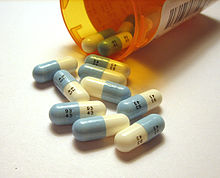Life is Filled with Stress and Anxiety
Life is filled with stress and anxiety, and our reliance on medication to help alleviate depression has grown hand in hand with the seemingly endless pressures of daily life. Antidepressants are, in fact, prescribed more often than any other medication, even compared to high blood pressure medication. Like the daily pressures of life, getting pregnant and having a safe and healthy pregnancy is no less stressful, and many women carry their use of antidepressants over into their pregnancy. Recent studies are, however, showing that taking antidepressants while pregnant is not without risk.

Anti-depressants and Pregnancy
Having a safe and healthy pregnancy resulting in a healthy, full term baby, is no easy task. The physical, hormonal and mental changes in a woman’s body play havoc on her emotions and can result in depression or other serious mental conditions. Faced with myriad risks, a pregnant woman must deal with a seemingly never ending barrage of “what ifs.” The fact is, however, that almost 20 percent of all pregnancies end in miscarriage and this rate is on the rise. A recent study out of Canada has proven that women who take antidepressant medication while pregnant increase their risk of miscarriage by 68 percent.
Miscarriages and Birth Defects
Worse yet, women who took paroxetine had a 75 percent greater chance of miscarriage than those not taking any antidepressant medications; women taking venlafaxine had doubled the risk of miscarriage. The highest risks were associated with women who took the antidepressants during the first trimester.
The news gets grimmer; the MedWatch Adverse Events Reporting System compiles data which reports that antidepressants are directly responsible for thousands of birth defects, spontaneous abortions and premature births. As more and more women are prescribed antidepressants, the numbers of miscarriages and other problems will only rise.
Treatment for Postpartum Depression and Pregnancy Depression
On January 6, 2010, the Mother’s Act was passed which ensures that new mothers and their families are educated about postpartum depression. This increased awareness of depression has resulted in a surge of women asking their doctors for antidepressants during and after pregnancy.